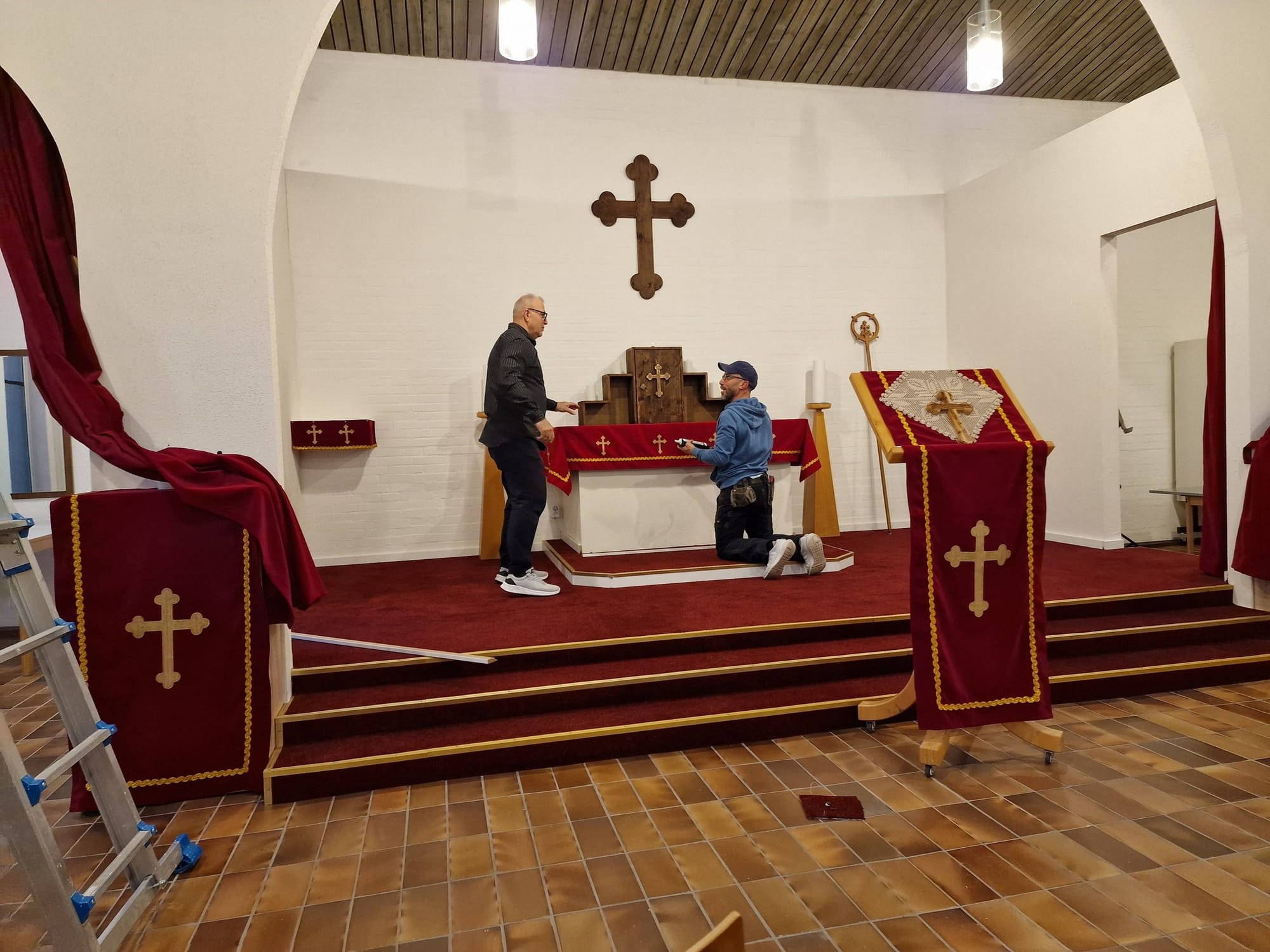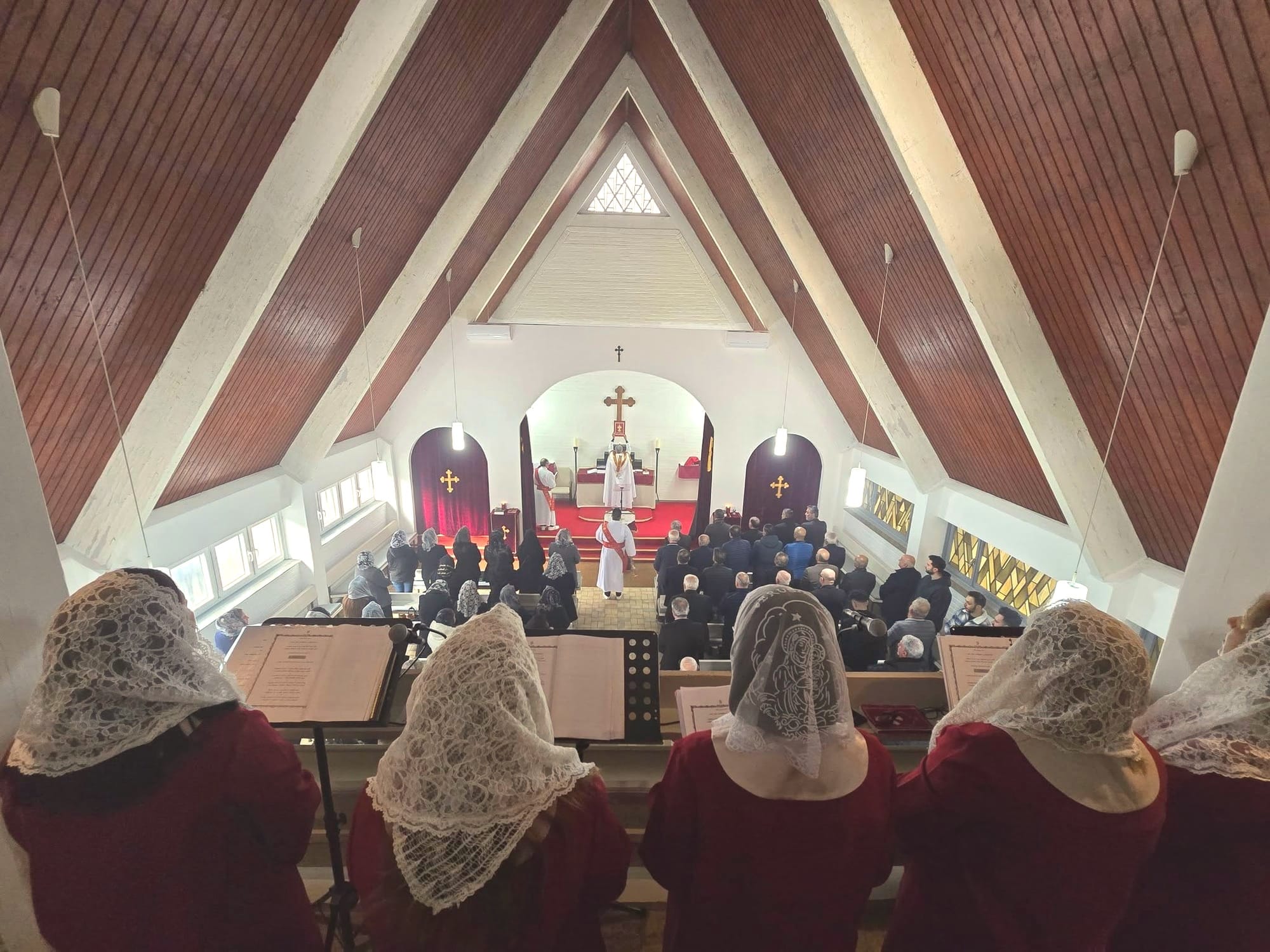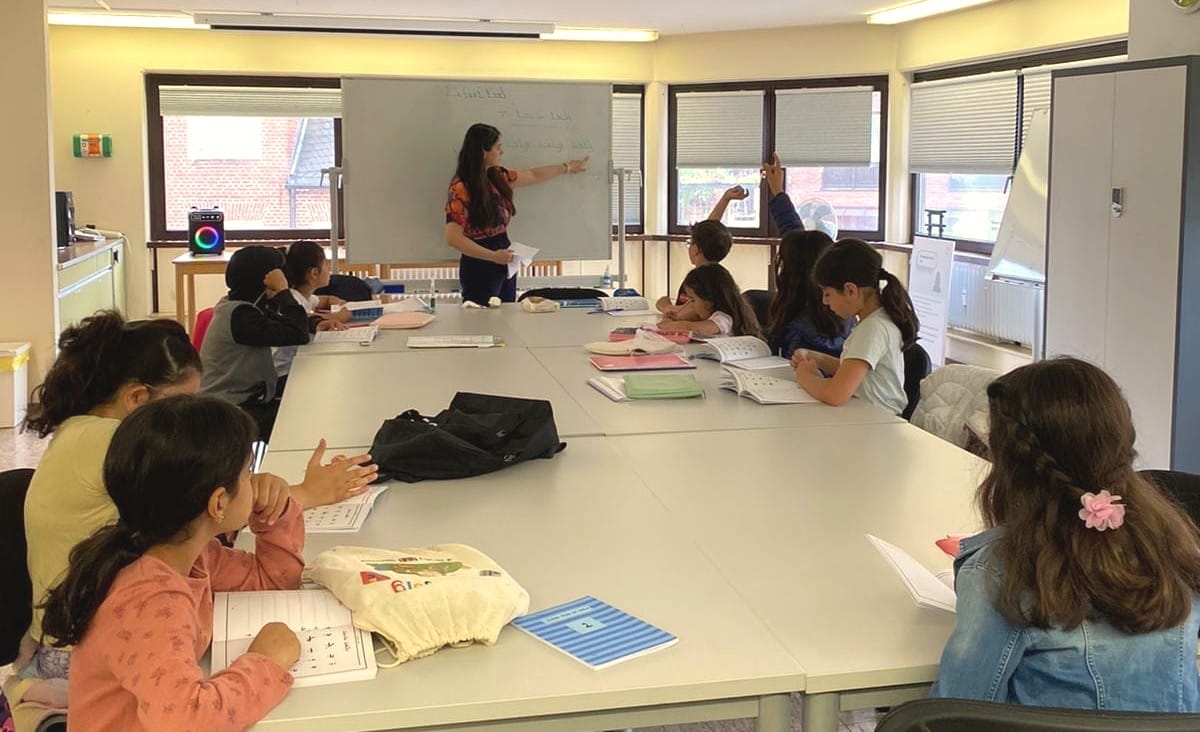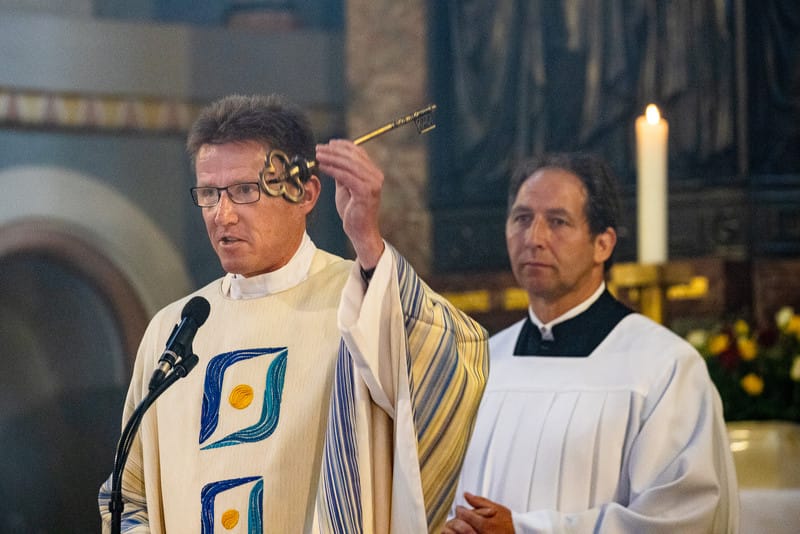While Assyrians from the Syriac Orthodox Church are well-established in Germany, with long-standing associations and thriving parishes, Assyrians from other denominations, such as the Chaldean Catholic Church and the Assyrian Church of the East, are only now becoming more firmly rooted.

Members of the Assyrian Church of the East are among the groups gaining a stronger foothold. On 2 November this year, a new altar was inaugurated at the Mar Georgis Church in Vreden, a small town on the German–Dutch border. Although an Assyrian community has existed in Vreden since the 1990s, it has only now reached the point of establishing its own parish. This milestone is largely due to an influx of new arrivals, mainly from the Khabur area in Syria’s Gozarto Region.

Just fifteen minutes south lies Borken, another small town with its own Assyrian community. There, the Mar Odisho & Mar Qardagh Church was consecrated in 2013. Like in Vreden, the Assyrian presence in Borken is old and dates back to 1997, when the parish of the Assyrian Church of the East was founded. As in many other towns, the community’s growth and ability to acquire a church building came with the arrival of Assyrians fleeing the civil war in Syria.

The ascent of Catholic Assyrians
The Catholic Assyrians of the Chaldean Church are also growing in number, with communities increasingly taking root across Germany. With around 20,000 members, they now form the second-largest Assyrian denomination after the Syriac Orthodox. Roughly a third of the Chaldean Catholic Assyrians live in the greater Stuttgart area, but there are now about a dozen of parishes spread throughout the country. Most members fled to Germany during the wars in Iraq, while others came from Syria’s Gozarto Region, southeastern Turkey’s Hakkari and Şırnak provinces, and a smaller number from Iran. Today, Chaldean Catholic parishes can be found in Stuttgart, Pforzheim, and Heilbronn in Baden-Württemberg; Ludwigshafen am Rhein and Mainz in Rhineland-Palatinate; and Augsburg, Munich, and Nuremberg in Bavaria.

Assyrian chants in German churches
With the growth of these communities and the decline of many local German parishes, several Assyrian congregations have taken over unused church buildings. In Essen-Stoppenberg, western Germany, Assyrians from the Chaldean Catholic Church took over the St. Nicholaus Church from a local Catholic parish that could no longer maintain it due to dwindling numbers. In Borken, the Mar Odisho & Mar Qardagh Church was purchased from an evangelical parish. Likewise, many former German churches have become home to Assyrians of the Syriac Orthodox Church, where new chants in the ancient tongue of the Assyrians now fill the once-empty halls.










